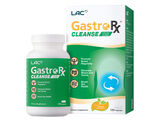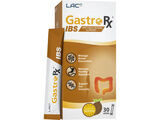Get The Scoop On Poop

Pooping less than 3 times per week? Poop is of an unusual consistency or colour? Feeling strained in your bowel movements or unable to properly empty them? Your poop can actually tell you a lot about your health.
Not having regular bowel movements? Pooping less than 3 times per week? Poop is of an unusual consistency or colour? Feeling strained in your bowel movements or unable to properly empty them? The type, colour, frequency, texture and even smell of your poop can actually tell you a lot about your health.
The pooping process involves your digestive system and if any part of the process is experiencing problems, it shows up in your poop. Since your gut affects all areas of your health including your immunity, paying attention to what is coming out of your rear end can be important in maintaining your overall wellness.
WHAT DOES YOUR POOP SAY ABOUT YOUR HEALTH?
1. Separate, hard lumps
You are having constipation, even if your bowel movements are frequent. There is a possibility that you are eating too much dry foods and not enough vegetables. Small poo clumps can also mean that you are not drinking enough fluids. If it lasts more than a couple of weeks, consult a doctor for possibility off Irritable Bowel Syndrome.
2. Sausage-shaped hard and lumpy
This can also be a sign of constipation. Try to get more fibre and fluids in your body to get things moving along.
3. Like a sausage but with cracks
Your poop is normal. It should be soft and easy to pass out. It should not take you longer than a minute on the toilet to push out the poop.
4. Like a sausage smooth and soft
Doctors consider this as the ideal kind of poop that should happen every one to three days.
5. Mushy stools
This consistency is too soft and could be signs of mild diarrhea. Make sure you are drinking plenty of fluids and replace the minerals that you are losing with fruit juices and soup.
6. Entirely liquid
This is definitely diarrhea. This means your stool moved through your bowels very quickly. Consult a doctor if you also have other signs of dehydration, severe pain in your tummy or fever.
In addition to the type of poop, the following characteristics also matter. See if you can identify with any of them!
• Colour
Healthy poop should be middle to dark brown in colour. If it is greenish, it could mean that your food is making its way down through your digestive tract too quickly (or that you ate too much greens). If it is black, it could mean that you have signs of internal bleeding. Red or purple could be because you ate coloured vegetables like beet but if you cannot associate it with any food that you ate of late, you might want to consult a doctor. If your poop is greyish or yellow, it is a sign that mucus is making its way into your stool and could indicate problems with your liver or gall bladder, consult a doctor.
• Frequency
The amount of bowel movements a day varies from person to person. It is normal for one person to poop twice a day while another poops every other day as long as it is consistent from day to day. However, it is still important to ensure that you are going to the toilet at least three or more times a week at minimum as any less would mean that you are constipated.
• Time taken
A normal poop would not need a long time to come out. It should feel easy and feel like you have emptied your bowels. The process should not take more than several minutes for most people or even shorter.
TIPS ON HOW TO POOP LIKE A CHAMP
Tip 1: Reduce intake of foods that cause constipation
Foods such as wheat, dairy products, citrus fruits, beans, cabbage, milk and carbonated drinks are usually pro-inflammatory and can irritate your digestive tract, leading to constipation.
Tip 2: Increase intake of fibre
A common cause of constipation is not eating enough fibre. Fibre increases the weight and bulk of your poop and softens it. A bulky stool is easier to pass, decreasing your chance of constipation. Fibre can also help solidify loose and watery stools by absorbing water increasing its bulk. A diet high in fibre can also lower your risk of diseases related to the colon. Find out the 10 vegetables you should be eating , or if you can’t fathom eating them, consider supplementing them in your diet with our LAC Colon Guard®
Tip 3: Hydrate
Aim to drink water every 2 hours and consume at least 8 glasses of water per day. This is to prevent dehydration and set you up for a better poop experience. It is also important to drink more water when you are eating a lot of fibre. High amounts of fibre without enough liquids can cause the fibre to expand and get stuck in in the digestive tract. This causes uncomfortable bloating, gas, pains and constipation.
Tip 4: Increase movement and exercise
There is no better way to loosen your digestive tract than to get your body pumping. Exercise stimulates your bowels and lymphatic system, which helps to push waste down to your colon, increasing bowel movement. Exercise also relaxes your mind and reduces stress, which is a reason for digestive issues.
Tip 5: Manage stress
A little known fact is that the brain and gut is intimately connected. A troubled gut sends signal to the brain; similarly a troubled brain sends signals to the gut. When we are feeling stressed, our brain communicates these uneasy feelings to our digestive tract, making the gut wall either constrict and tense up (causing constipation) or to work overtime and cramp up (causing diarrhea). Managing your time well and prioritising the things in your life to help reduce stress can help improve your digestive tract too.
Tip 6: Maintain friendly bacteria in your digestive tract
Probiotics are "good bacteria" that support a healthy digestive system by keeping growth of harmful bacteria at bay. A healthy person typically carries more than 100 - 300 billion bacteria and yeast1. However factors like aging, stress and diet can affect the level of healthy bacteria in our body. Therefore it is important to replenish the ‘good bacteria’ in order to stay free from digestive problems. Some foods containing probiotic include yoghurt, kombucha and miso soup. However, with our busy lifestyles, we might not be able to consume these foods daily. Supplementing with our Probiotics might be a viable and convenient option to ensure that you get the optimal amount of probiotic in your digestive system.
Tip 7: Do not resist the urge to go
Resisting the urge to go to the toilet and keeping your poop in from time to time is not harmful but doing it too often can add pressure on your bowels and colon and can cause them to change shape. When you hold, the muscles of your colon stretch and send the signal to stop responding to the urge to go, which can sometimes result in slower emptying of the colon when it's time.
Tip 8: Consider supplements that supports healthy digestive system
LAC GastroRX® Irritable Bowel Support is specially formulated to help manage bowel discomfort, maintain healthy digestion and support gut immunity. It contains a high concentration of Gold Kiwi extract plus added Vitamin C to help provide better bowel support.
It also helps to promote the healthy bacteria Faecalibacterium prausnitzii found in the intestines, which plays a significant role in alleviating serious digestion symptoms caused by stress, diet and ageing.
LAC GastroRX® Irritable Bowel Support is a vegetarian formula and contains no preservatives or artificial colours.







